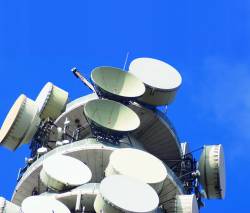The European Commission (EC) is on track to mandate that smart phones in the European Union (EU) be capable of using signals from the Galileo satellite navigation system as well as other systems including GPS.
The move is part of a broad space strategy launched in October 2016 to strengthen the EU’s space program and maximize its benefits.
“Now that the infrastructure of EU space programmes is well advanced, the focus needs to shift to ensuring a strong market uptake of space data by the public and private sector,” the press release announcing the space strategy said. “…The Commission will promote the use of Galileo in mobile devices and critical infrastructures and improve connectivity in remote areas. It will make it easier for innovative companies and start-ups to access space data via dedicated industry-led platforms in order to develop services and applications.”
Calls for Help
There were some 230 million emergency calls made in the EU in 2015, according to a European Commission report on the HELP112 Project, which studied ways to improve the ability to locate callers reaching out via the emergency 112 number. A large majority of those calls, some 75 percent, were placed from mobile phones. Unfortunately it is not always easy for emergency responders to find cell phone callers.
“The current practice of establishing caller location, which is based on cell-ID positioning, whilst available and guaranteed under the Universal Services Directive, is not accurate enough as it provides caller location based on the serving cell-tower of a mobile phone, which may not necessarily be the closest cell-tower,” the discussion paper said. “This area is dependent on the angle of coverage and cell radius. The latter can vary from 550 meters to several kilometers. In certain cases, notably in mountains and cities, this can lead to significant errors in positioning emergency callers.”
According to the HELP112 study, which was published in 2017, close to 800 lives could be saved annually by adding GPS and Galileo to smart phone chip sets and automatically enabling location for emergency calls.
A new regulation mandating Galileo use will “help ensure that European citizens will be able to access emergency services in a timely manner in calls to emergency numbers such as 112 from mobile phones registered to their home network when they travel abroad,” the paper said.
Making It Work
May 2018 was the planned target date for adopting the rule under the regulatory power already delegated to the EC to harmonize telecom regulations. The EC held an expert group meeting in March and the rule will enter into force on the twentieth day following that of its publication in the Official Journal of the European Union. It shall then apply as of 24 months after the entry into force.
Even though getting this far has taken several years the EU is closer to integrating Galileo signals into its emergency call service than the United States. A request to allow Galileo signals to be authorized for use in the United States for official purposes has long been in the hands of the Federal Communications Commission. Though the Galileo signal is being broadcast in the U.S. it cannot be used to meet requirements for things like enhanced emergency calls (e911) until it is authorized by the FCC.






